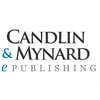CHAPTER 12. The Interrelationship Between Social Structures and Agency in Language Learning
Magdalena Avila Pardo
Abstract
This study examined the extent to which social structures influence learners’ desire to invest time and effort in language learning. It explores the use of English amongst undergraduate students, users of a self-access learning centre, in Cancun, Mexico, a city created as a tourist hub. In such a context, English is identified as linguistic capital, a product of social structure, and students’ investment in language learning is considered an example of agency. The two-year longitudinal study drew on David Block’s (2013) writings and his claim that in language and identity research, social structures are paramount as shapers or constraints of one’s individual agency. Critical Realism was applied as a theoretical and methodological approach to investigate why language learners choose to shape or resist their access to English as a Foreign Language.
Resumen
La interrelación entre estructuras sociales y agencia en el a prendizaje de lenguas
Este estudio examinó la influencia de las estructuras sociales en el deseo de estudiantes de invertir tiempo y esfuerzo en aprender idiomas. Explora el uso del inglés entre estudiantes de licenciatura, usuarios de un centro de autoacceso, en Cancún, México, ciudad creada como centro turístico. En este contexto, el inglés se identifica como capital lingüístico, producto de la estructura social, y la inversión de los estudiantes en el aprendizaje del idioma se considera un ejemplo de agencia. Este estudio longitudinal de dos años se basó en los escritos de David Block (2013) donde afirma que, en la investigación sobre lengua e identidad, las estructuras sociales son importantes formadoras o limitadoras de la agencia de los individuos. Se adoptó el Realismo Crítico como enfoque teórico y metodológico para investigar por qué los estudiantes de idiomas deciden aprovechar o rechazar su acceso al inglés como lengua extranjera.
About the Contributor
Magdalena Avila Pardo (PhD) is a Professor and Counsellor at the Self-Access Centre of the Universidad del Caribe in Cancun. She is interested in the interrelationship between social structures and language learners’ agency, taking into account the psychological angle. Her work is theoretically informed by critical realism.
Citation
Avila Pardo, M. (2023). The interrelationship between social structures and agency in language learning. In C. Ludwig, M. G. Tassinari, A. Ruiz Guerrero, & K. Nagao (Eds.), Developing learner autonomy in foreign language learning: Papers from the Independent Learning Association Conference, Mexico, June 2021 (pp. 217–235). Candlin & Mynard. https://doi.org/10.47908/29/12
This study examined the extent to which social structures influence learners’ desire to invest time and effort in language learning. It explores the use of English amongst undergraduate students, users of a self-access learning centre, in Cancun, Mexico, a city created as a tourist hub. In such a context, English is identified as linguistic capital, a product of social structure, and students’ investment in language learning is considered an example of agency. The two-year longitudinal study drew on David Block’s (2013) writings and his claim that in language and identity research, social structures are paramount as shapers or constraints of one’s individual agency. Critical Realism was applied as a theoretical and methodological approach to investigate why language learners choose to shape or resist their access to English as a Foreign Language.
Resumen
La interrelación entre estructuras sociales y agencia en el a prendizaje de lenguas
Este estudio examinó la influencia de las estructuras sociales en el deseo de estudiantes de invertir tiempo y esfuerzo en aprender idiomas. Explora el uso del inglés entre estudiantes de licenciatura, usuarios de un centro de autoacceso, en Cancún, México, ciudad creada como centro turístico. En este contexto, el inglés se identifica como capital lingüístico, producto de la estructura social, y la inversión de los estudiantes en el aprendizaje del idioma se considera un ejemplo de agencia. Este estudio longitudinal de dos años se basó en los escritos de David Block (2013) donde afirma que, en la investigación sobre lengua e identidad, las estructuras sociales son importantes formadoras o limitadoras de la agencia de los individuos. Se adoptó el Realismo Crítico como enfoque teórico y metodológico para investigar por qué los estudiantes de idiomas deciden aprovechar o rechazar su acceso al inglés como lengua extranjera.
About the Contributor
Magdalena Avila Pardo (PhD) is a Professor and Counsellor at the Self-Access Centre of the Universidad del Caribe in Cancun. She is interested in the interrelationship between social structures and language learners’ agency, taking into account the psychological angle. Her work is theoretically informed by critical realism.
Citation
Avila Pardo, M. (2023). The interrelationship between social structures and agency in language learning. In C. Ludwig, M. G. Tassinari, A. Ruiz Guerrero, & K. Nagao (Eds.), Developing learner autonomy in foreign language learning: Papers from the Independent Learning Association Conference, Mexico, June 2021 (pp. 217–235). Candlin & Mynard. https://doi.org/10.47908/29/12

Information About the Book
Title: Developing learner autonomy in foreign language learning: Papers from the Independent Learning Association Conference, Mexico
Editors: Christian Ludwig, Maria Giovanna Tassinari, Adelina Ruiz Guerrero, and Kazuko Nagao
Publication date: December 2023
Read more...
Title: Developing learner autonomy in foreign language learning: Papers from the Independent Learning Association Conference, Mexico
Editors: Christian Ludwig, Maria Giovanna Tassinari, Adelina Ruiz Guerrero, and Kazuko Nagao
Publication date: December 2023
Read more...
